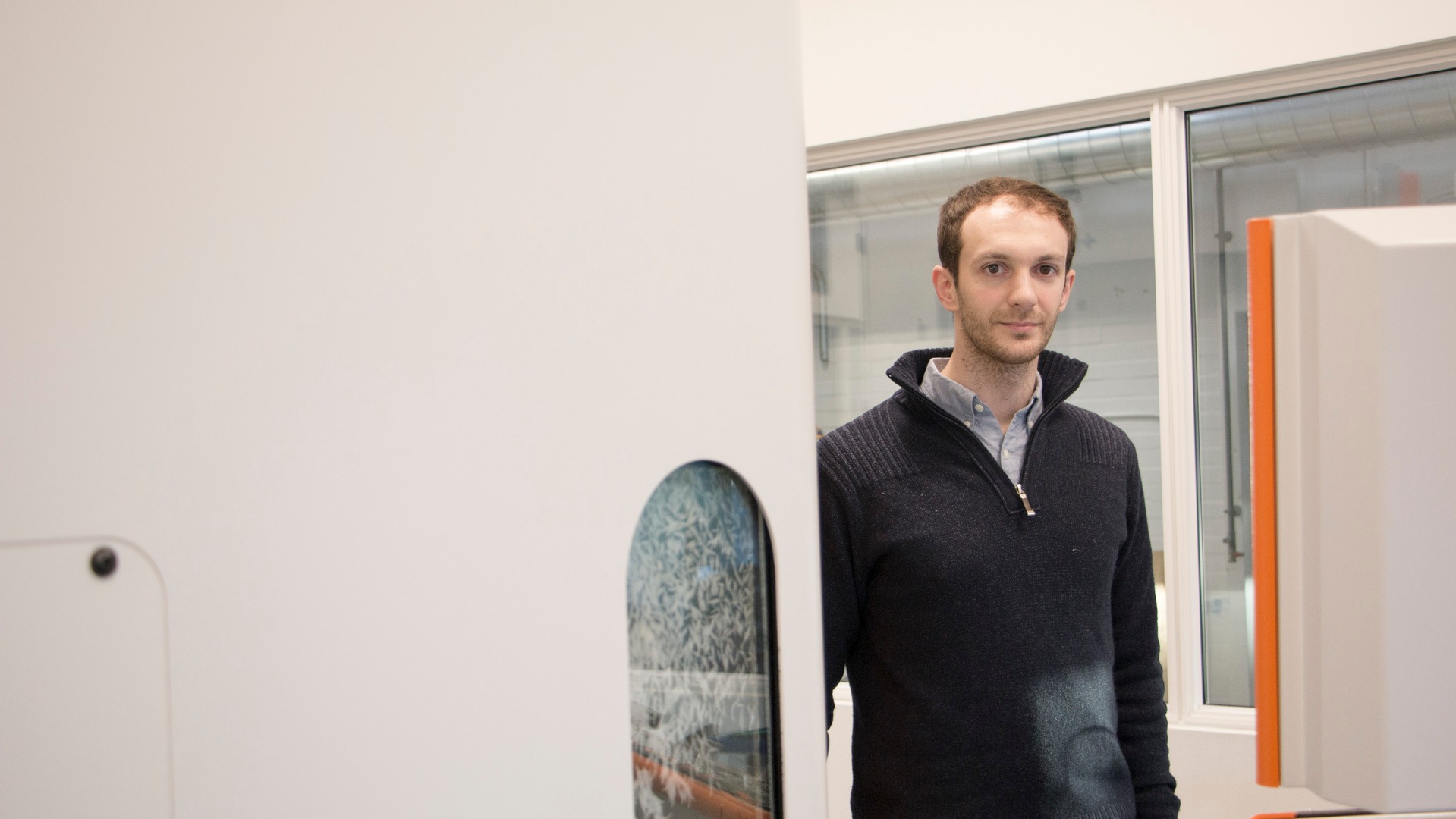
There are several good reasons for using additive manufacturing – also known as 3D printing – in production.
With 3D printing you can quickly design, construct and manufacture unique tools, production equipment and products that would be impossible to manufacture with other manufacturing processes.
Because of these benefits, 3D printing may significantly reduce the production time of even advanced injection molds, enabling companies to introduce new products faster or develop agile supply chains.
However, 3D printing also has a disadvantage, and that disadvantage has kept a young Italian researcher from Technical University of Denmark employed during the last three years.
"You usually want nice, glossy surfaces on plastic parts produced in injection molds. Unfortunately, that is not the case with traditional, 3D-printed injection molds," Francesco Giuseppe Biondani explains.
Francesco Giuseppe Biondani completed his PhD in the beginning of 2018 after three years of research at DTU and as a part of the MADE research in the area of 3D print and new production processes.
"3D printing has had a breakthrough because you can produce injection molds with a lot of nice features, such as cooling channels that follow the geometry of the injection mold, so it can be cooled faster with a reduction in cycle time. Also, you can potentially combine several different materials such as functional hard coating for improved wear resistance of the injection molds. The problem is that the parts coming out of 3D printed injection molds lack shiny surfaces and need post-processing," he says.
The post-processing typically involves several milling cycles with a milling machine, but if you want very shiny and smooth surfaces – e.g. on toys or on the plastic parts in the interior of cars – it is necessary to polish the injection molds afterwards.
The polish process is a problem in the whole process chain of additive manufacturing, Francesco Giuseppe Biondani points out.
"It is a manual process, which lacks repeatability and is strongly dependent on the operator skills. This means that I can do polish the injection mold in one way and you can do it in a different way. Therefore, there are not two injection molds that are alike. Additionally, it is a physically hard task for the operator," he says.
Nominated for PhD prize
The RTO FORCE Technology and the LEGO Group worked together with Francesco in his project. He has frequently been at the facilities of FORCE Technology in Brondby, Copenhagen, to carry out tests.
The aim of the PhD project was to find solutions for producing injection molds which have the glossy, optical surface quality, based on additive manufacturing and without requiring the manual polishing processes.
Based on his research, Francesco Giuseppe Biondani proposes three different processes that solve or significantly reduce the need for manual polishing.
Maintain production in Denmark
"The first solution is to use diamond machining with a smart choice of material for printing. Diamond machining is an automatic and reliable process that can provide optical surface quality. Unfortunately, steel and most of the metals used for mold productions are not diamond machinable. Therefore new innovative materials were tested," Francesco Giuseppe Biondani explains.
Despite the lower hardness compared to steel injection molds, the introduced materials have several advantages in terms of reduced cycle time of the injection mold production and the avoidance of manual polishing.
The second solution is to combine different additive manufacturing processes and different materials – namely 3D printing of steel and electroformed nickel – to create a smooth surface on top of a regular steel injection mold.
"Finally, the third solution is based on a steel injection mold by additive manufacturing, using digital models of the material removal process to optimize the milling process and the quality of the surface produced. Using the digital models, we can adjust on different cutting parameters to make the surface as smooth as possible. We may not be able to completely remove the need for final polishing, but the amount of required polishing can be reduced a lot, and maybe skipped for some products," Francesco Giuseppe Biondani says.
From Padova to Lyngby
The three methods each have their strengths and weaknesses. It may vary from industry to industry and from product type to product type, which solution that is suitable, the newly educated PhD emphasizes.
A common denominator for all three solutions is that they fully or partially automate a process that is currently manual.
"All three solutions are very beneficial because you can produce injection molds faster and thus get products on the market faster. And if you additionally can reduce the costs of production, you can keep production in Denmark," he says.
Francesco Giuseppe Biondani was originally educated at the University of Padova in northern Italy. He first went to Technical University of Denmark as an exchange student on his master's degree program.
As a graduate in mechanical engineering, he initially worked in an internship program, focusing on process improvement and quality control, at Luxottica, the Italian eyewear manufacturer. Then Denmark called again.
MADE was launched and Francesco Giuseppe Biondani was recruited to one of the PhD positions in 3D printing and new production processes at DTU.
And the Italian engineer will be staying in Denmark – a least for a couple of years. He continues his research as a postdoc in the new research program MADE Digital and the work package Digital Manufacturing Processes.
"I will still be working with process chains and additive manufacturing, but this time I will address the gathering of reliable data from machines and sensors in the process. The purpose of this is to gain knowledge about parameters and combination of parameters that give defects in production in order to detect and avoid defects before they happen," Francesco Giuseppe Biondani says.